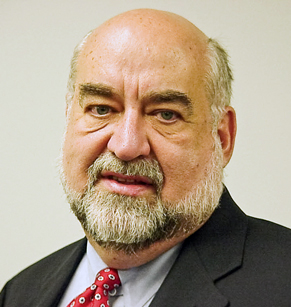Because of the rapidly changing landscape of PR, there has been much conversation in the PR community about what universities are teaching communications majors vs. what they should be teaching them. Indeed, PR executives should have high expectations of their new employees, but how can those expectations be met?
As a professor of communications at a university with nearly 30,000 students, I see real gaps in basic PR education that need to be filled—let alone specific instruction on the new digital platforms.
 |
|
DAVID RITCHEY |
To help fill these gaps, PR executives need to get involved with local colleges and universities. The following list of the 10 things PR executives should demand of a university’s public relations program could be a starting place for a presentation to the local PRSA chapter, or at a university’s faculty meeting.
1. Faculty with Professional Experience: Students deserve a teaching staff with professional experience. Here in Akron, I’ve found it easy to hire adjuncts within PR, as they thoroughly enjoy the classroom setting.
A few years ago, we hired a PR professional to teach public relations writing. Before her first class she stopped by my office and told me she’d spent the day writing an obituary for the CEO of her company. “We’ve bought a full-page in a large newspaper because it’s necessary to show respect for the man’s career,” she said.
Having her tell students about this important writing assignment was priceless.
2. Strong Internship Program: This provides a professional working situation with a supervisor who can help students hone skills and develop new abilities. In an internship, the student must learn about the good, the bad and the tedious aspects of the business. However, schools should ensure that students are not just getting coffee for higher ups.
3. PRSSA Presence: An active PR Student Society of America chapter gives students the opportunity to develop personal leadership skills. In addition, the students can tap prominent local PR executives who can give students an overview of their chosen field. Students can hone their PR skills by participating in PRSSA competitions and attending events.
4. PRSA Relationship: In line with demand No.3, the university must interact with the local PRSA chapter. I require my students to attend at least one PRSA meeting each semester. By networking at these meetings, a student may get a prize internship or a job interview.
5. Integration with School Marketing and Business Departments: The faculty and the students need a good working relationship with the Departments of Marketing and Business. Marketing is a superior minor for the PR major, and many companies new PR employees with knowledge of integrated marketing strategies.
6. Independent Study: This continues to be the “wild child” of the academic world.
Usually, independent study allows a student to build their own course of study. Basically, the faculty will say to the student: “If we don’t have the course you want, let’s invent it.” The student can then combine PR with a special interest (health communication, sports communication or others).
7. Link to the Business Community: A strong link to the professional community (beyond the PR community) is necessary. Often, smaller companies without a PR department will reach out to faculty and students with project work. These efforts give students real-world experience and impressive items in their portfolios.
8. Graduate Level Specialization: Students may want a specialization in public relations on the graduate level. But, if their undergraduate school didn’t offer appropriate public relations classes, I insist they take some of the undergraduate public relations courses they missed.
9. Global Focus: As a Fulbright Scholar in Romania, I interviewed the head of a PR firm. When I asked her about globalization, she said, “Globalization doesn’t exist. All public relations is local.” If all PR is local, we must prepare our students to understand cultural differences and how to deal with local PR anywhere in the world.
10. Offer Students Extras: PR students should be given added value in their education: a sub-specialty in health communications, or a professional writing certificate with the English department. Such extras provide an important notch on a resume.
The time has come for PR executives to take a lead in strengthening the PR program at their local universities. PRN
CONTACT:
David Ritchey, Ph.D., is a professor in The School of Communications at the University of Akron in Ohio. He can be reached at [email protected].
